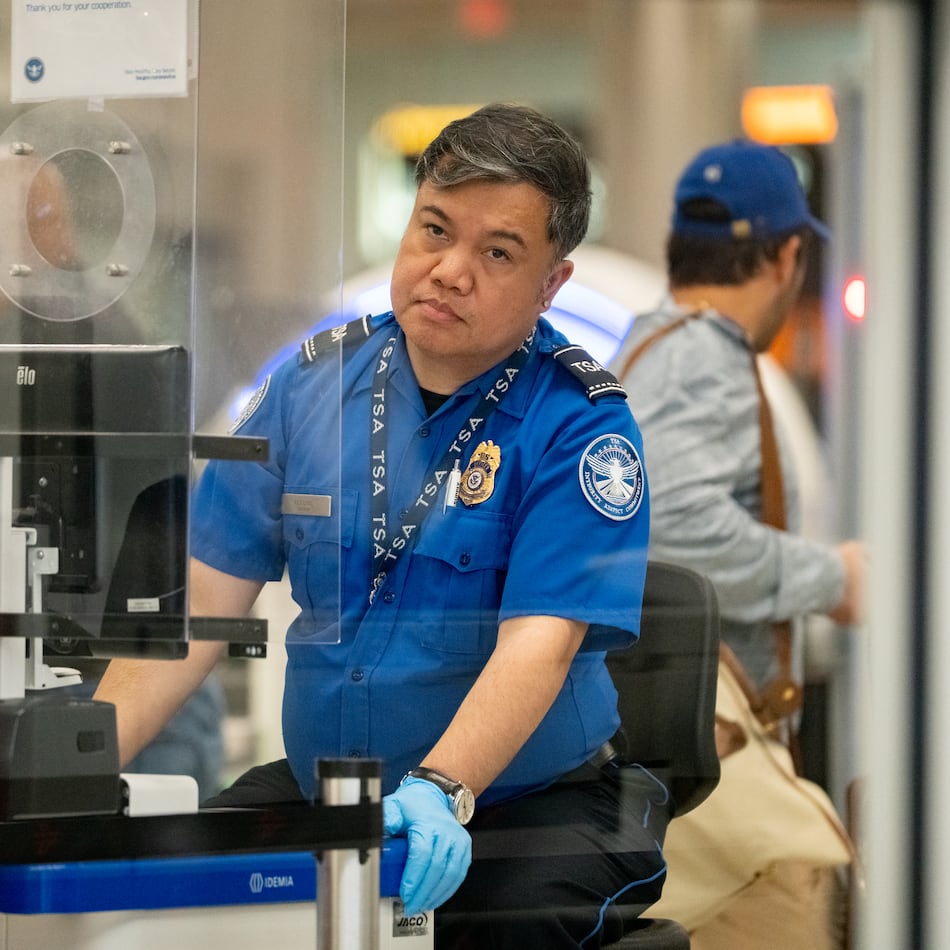A trucker will be allowed to haul gasoline in Doraville after a first-of-its-kind tribunal hearing split city leaders and sparked a debate over whether convicted felons should be trusted to drive fuel trucks.
Jason Bernard Washington was denied a permit to access the Chevron Doraville Terminal in Doraville after he pleaded guilty to two domestic violence charges last year. Washington, who has driven tanker trucks for two decades, admitted to punching his then-girlfriend — now his wife — and stopping her from calling 911.
Doraville has a little-known ordinance that prohibits people convicted of violent felonies from gaining access to the gasoline terminal, one of the largest in the southeast. Last Wednesday, the city’s mayor and council heard Washington’s case and voted on whether his crimes justified his permit being denied.
“To me, he’s a hero. He’s an essential worker,” Carey Johnson, Washington’s attorney, said during the public meeting. “If he’s not out doing what he does, it would be hard for us to do what we do.”
The six-member council was evenly split on whether the city’s police chief acted appropriately by denying Washington’s application. This is the first time someone has appealed being denied this petroleum permit in Doraville.
Councilwoman Stephe Koontz told The Atlanta Journal-Constitution that Washington’s prior actions showed he’s unable to control his emotions, which could pose a threat to the city and its residents.
“We do these background checks to block potentially unstable people from driving gasoline tanker trucks into the Doraville tank farm area,” Koontz said. “An event, whether accidental or intentional, would have catastrophic repercussions to the southeastern U.S.”
During his argument, Johnson said his client has paid for his crimes, serving a probation sentence. He argued Washington’s job hinged on his ability to gain access to the Doraville-based gas terminal, which stores more than 250,000 pounds of petroleum blending materials.
In July 2019, Washington was charged with battery family violence and hindering a 911 call after the incident in Henry County. He accepted a plea deal in May 2021, according to court records.
“While Mr. Washington may have violated that letter of the law by his guilty plea … he didn’t violate the spirit of the law,” Johnson said.
Councilwoman Rebekah Cohen-Morris said Washington’s two charges are typically misdemeanors unless it’s a third conviction, which it was in this case. While “violent felony” isn’t a legal term in Georgia, she said “serious violent felony” is and includes crimes like murder, rape and assaults. She said Washington’s case isn’t the same level of violence as those.
“I think when people have already paid their debt to society, it’s incumbent upon elected officials to find a way to best reintegrate them into society,” she told the AJC. “I think continuing to punish someone after they have rejoined the community really is both cruel and honestly counterproductive.”
Councilwoman Maria Alexander disagreed, saying Washington’s actions were clearly violent. According to his indictment, he left the victim with a red welt on her forehead and a red mark across her chest while stopping her from calling authorities.
“The ordinance clearly states that you lose your right to drive a tanker truck or a truck hauling propane if you are convicted of a felony, which he was,” she told the AJC.
Before voting whether to reinstate Washington’s permit, Alexander added that she’s a victim of domestic violence and felt his action’s were being downplayed. She abstained, which effectively acted as a no vote. Koontz and Councilman Chris Henshaw also voted no, while Cohen-Morris and councilmen Andy Yeoman and Gerald Evans voted yes. Mayor Joseph Geierman broke the tie, allowing Washington back his permit.
“Georgia’s courts had already ruled on what punishment Mr. Washington should receive,” Geierman told the AJC. “I could not see how denying the man his livelihood would help make the people of Doraville safer, and would only add to hardships for him and his family.
Geierman and councilmembers also said they’d like to reexamine this ordinance and how appeals are handled. They’ll also consider having a judge makes these decisions in the future.
About the Author
The Latest
Featured


